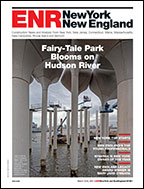But on the flip side, Underwood says Millennials postpone commitments to career, marriage and parenting. He links the lack of commitment to the job-hopping characteristic of the group, something the Millennials themselves confirm.
“If the organization isn’t the right fit, it’s perfectly socially acceptable for us to jump,” says McAndrew-Benavides. She cautions younger colleagues not to give up too quickly. “Sometimes you have to do work you don’t necessarily love for six to 12 months to get where you want,” she says.
Underwood says companies that do not meet the Millennial’s expectations will have to “settle for the second-tier employees.”
Lukas Petrash, a 27-year-old architect in Houston, is similarly impatient to get on. “This generation has a lot of good ideas and talent and wants to use that immediately,” he says. “We are used to the Internet, where you can become an instant success overnight.”
In a display of devotion to sustainability that is typical of Millennials, Petrash founded Adia (thinkadia.com), an uber-eco, cost-effective house prefabrication company that sells $30,000 house kits that ship anywhere in the world for $3,000.
Call them Millennials, Generation Y or Generation Next—all these names are used—but demographers interviewed by ENR and many Millennials themselves agreed the names all try to classify a distinctive group of Americans born after about 1980 who are part of a wave that continues today. Each year, this rising generation of construction professionals and craftspeople gets more relevant not only because of its growing numbers in the workforce but because of the singular qualities it brings. One key quality of Millennials is that they are digital natives—they barely remember the era before computers.
Millennials told ENR they want two things from the construction industry: respect and change, and they likely will get both. The vacuum created by the large numbers of baby boomers (born between 1946 and 1964) now beginning to retire will draw Millennials into managerial roles at an early age.
“The biggest challenge facing the construction industry today is the transition of power to the Millennial generation,” says Jennifer Gross, a 26-year-old design engineer in San Francisco. “Our generation will change how management and employees interact in the A/E/C industry. We have a different approach to the work/life balance [and] the drive to change the industry.”
In order to mentor the next generation of construction professionals, baby boomers must understand the Millennial mind-set to help groom them for leadership roles. Gross and her peers also are searching for ways to prepare themselves to fill the many positions that will open up as boomers retire. “Many of us know we can move quickly,” says Elizabeth McAndrew-Benavides, a 31-year-old manager of industry infrastructure at the Nuclear Energy Institute at Washington D.C. “I went from assistant engineer to engineer to senior engineer in three and a half years.”
Banding together is one strategy that comes naturally to Millennials, and they have done just that in forming the Construction Millennials of America, a Facebook-powered group for Millennials only.



Post a comment to this article
Report Abusive Comment